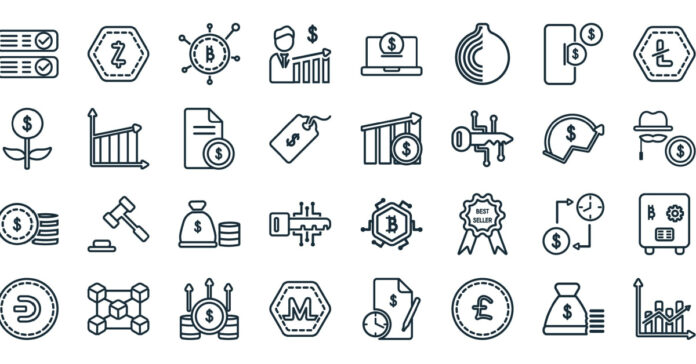Cryptocurrency loans are on the rise. In fact, Raconteur found they’re fast becoming a genuine alternative to borrowing money from banks. This development isn’t surprising: many worldwide already buy, trade, and sell crypto. After all, crypto is still a currency despite being digital. If you’re new to crypto loans and deciding between this and personal loans, keep reading to find out which is the best option for you.
Crypto loans
Cryptocurrencies are assets similar to cars, houses, or stocks. As such, they can serve as collateral for loans. A crypto loan works by using your crypto holdings as collateral in return for liquidity from a lender. One popular crypto lending platform is Celsius Network—which hit $4 billion in loan origination in 2019. You can use your crypto loan at your discretion. This loan type allows you to manage your crypto assets. It also allows the lender to take action—like acquiring your assets—if you miss payments.
There are two types of crypto loans: centralized finance (CeFi) and decentralized finance (DeFi). In CeFi, the lender controls your crypto for the repayment period. Meanwhile, DeFi uses smart contracts to guarantee your obedience to the requirements.
Qualifications
You must own any crypto accepted by the lender of your choice. The most common are Bitcoin and Ethereum. You will also be asked for identification and proof of crypto assets.
Risks
Because crypto is digital, your assets are at risk of cybercrime and security breaches. The World Economic Forum explains crypto regulation in multiple countries thus focuses on improving investor and consumer protection. Such regulations allow for better transparency and authorization of transactions, including loans. However, these efforts to protect crypto consumers are still in their early stages, so it’s vital that you research crypto lending platforms before availing of their services.
Personal Loans
Personal loans can be acquired through a bank, credit union, or financial lender. The most common type of personal loan is unsecured, often used to finance big purchases like vacations. You’re not required to put up collateral, so the lender won’t get your assets if you fail to pay. Still, you may face consequences like additional fees and even lawsuits. On the other hand, secured loans require collateral like a car or house. Non-payment will lead to a loss of collateral and a lower credit score, affecting your chances of securing future loans. Secured loans are often utilized for mortgages or auto loans.
Qualifications
Anyone on the credit spectrum can get a personal loan. If you want higher chances of approval and a lower interest rate, Sound Dollar notes that applying for a personal loan requires a good credit profile. This involves having a credit score of 670 or higher, which displays your responsibility to pay on time. To improve your score, frequently pay bills on time and avoid maxing your credit limit. You will also need proof of income or employment to ensure repayment.
Risks
Because you can get personal loans from financial lenders, they may not follow the same privacy rules as banks and credit unions. Thus, your personal and financial data might be used or stolen without notice.
Which should you choose?
Choose a crypto loan if you have a low credit score and crypto assets you’re willing to risk. Crypto lenders are not banks, so they will also have lower interest rates. If you have a high credit score and collateral you can’t risk, go for a personal loan. The only thing you’re up against is time. Both loans have risks and responsibilities, so be cautious of what you’re putting at stake and always pay your dues on schedule.
If you liked this article, keep browsing Blockchain News for more.







[…] Source link […]
[…] Source link […]
[…] Image and article originally from http://www.the-blockchain.com. Read the original article here. […]
[…] Credit: Source link […]
[…] Source link […]
[…] Source link […]
[…] Source link […]
[…] Source link […]
[…] Source link […]
[…] Source link […]
[…] Source link […]
[…] Source link […]
[…] Source link […]
[…] Credit: Source link […]
[…] Source link […]
[…] Receive $10 in Bitcoin when you buy or sell $100 or more on Coinbase! https://mathisenmarketing.com/coinbase Source link […]
[…] Source link […]
[…] Source link […]
[…] Image and article originally from http://www.the-blockchain.com. Read the original article here. […]
[…] Source link […]
[…] Source link […]
[…] Source link […]
[…] Source link […]
[…] Source link […]
[…] Source link […]
[…] Credit: Source link […]
[…] by /u/Ben_aid [link] […]
[…] Source link […]
[…] Source link […]
[…] Source link […]
[…] Source link […]
[…] RELATED ARTICLESMORE FROM AUTHOR […]
[…] Source link […]
[…] Source link […]
[…] Credit: Source link […]
[…] Source link […]
[…] Source link […]
[…] Source link […]
[…] Source link […]
[…] Source link […]
[…] 來源鏈接 […]
[…] Source link […]
[…] Source link […]
[…] Source link […]
[…] Source link […]
[…] Source link […]
[…] Source link […]
[…] Source link […]
[…] Source link […]
[…] Image and article originally from http://www.the-blockchain.com. Read the original article here. […]
[…] Source link […]
[…] Source link […]
[…] Source link […]
[…] Source link […]
[…] Source link […]
[…] Source link […]
[…] Source link […]
[…] Source link […]
[…] Source link […]
[…] Source link […]
[…] Source link […]
[…] Source link […]
[…] Source link […]
[…] Source link […]
[…] Source link […]
[…] Source link […]
[…] Source link […]
[…] Source link […]
[…] Supply hyperlink […]